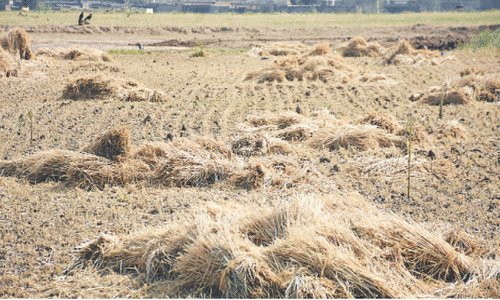THIS newspaper has argued that to defeat the self-styled Islamic State, regional powers must combine forces in order to dislodge the extremist outfit from the territory it has occupied in Syria and Iraq, and to bring its leaders and fighters to justice. The fact that Turkey has decided to take a more active role where countering IS is concerned may be a major step towards realising this goal. On Friday, Turkish jets reportedly targeted IS positions inside Syria, killing a number of militants. It is likely the strikes were motivated by the recent deadly suicide bombing in the Turkish town of Suruc on the Syrian border; over 30 mostly Kurdish civilians were killed in that atrocity, which Ankara believes was carried out by a bomber with IS links. Along with the air strikes, Turkey has also given the US-led coalition access to its airbases in order to target the extremist group, while police have also launched swoops inside the country, picking up hundreds of suspects believed to have sympathies for the ‘caliphate’.
Though Ankara’s change of heart has come late in the day, it is nonetheless welcome. After all, media reports have suggested that “thousands” of foreign “volunteers” have made their way to the battlefields of Syria via Turkey, while IS and al-Nusra fighters have also allegedly taken refuge on Turkish soil. While officially the Recep Erdogan-led government opposes IS, it also has no love lost for the Assad regime, which is why it has been accused of looking the other way as extremists use its territory to dislodge the Damascus government. But supporting or even ignoring the activities of militant groups can have adverse effects, particularly for Turkey’s internal security, as the Suruc bombing has painfully illustrated. That is why all regional states must review their policies and stop any support for extremist groups. At the same time, world powers must work towards bringing about a negotiated settlement to the Syrian civil war, which is now in its fifth year and has cost over 200,000 lives. Similarly, the government in Baghdad must be supported by regional players in its fight against IS. It is clear that should countries of the region ignore the IS threat and continue to fight proxy wars against each other, the security situation in the Middle East will become increasingly precarious. Should Turkey — a Nato member — take a firm stand, its anti-IS campaign could be a game-changer.
Published in Dawn, July 26th, 2015
On a mobile phone? Get the Dawn Mobile App: Apple Store | Google Play













































